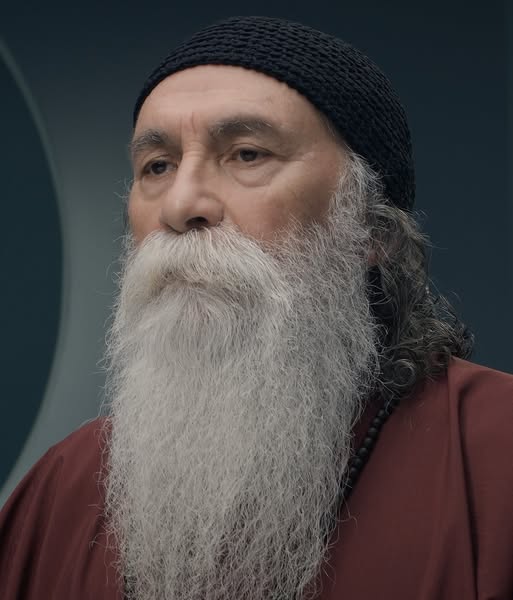“The search for truth is much more than intellectual refinement or a luxury for the idle mind. It is a rupture, a decision that, once made, breaks with conventional forms of comfort, with the inertia of habit, and with the urge to stay safe. It is not about achieving balance, inner well-being, or even feeling more lucid. It is simply about observing. But observing, in this sense, is not comforting. It disarms. It does not organize what has been experienced; it calls it into question. The truth, when it imposes itself, does so without embellishment: it presents itself as a relentless form of clarity that undoes the supports that gave shape to the previous life. Pascal put it bluntly: “Man is endlessly surpassing himself.” Living is not enough; one must understand what it means to be that which lives. And that understanding does not liberate: it destabilizes.
Those who seriously incline toward truth learn, almost instinctively, to distrust happiness when it presents itself as a horizon. They do not deny it, but they cease to expect it. It becomes, at best, an unnoticed consequence or a residue. Happiness, once erected as an end in itself, degenerates into a caricature: it becomes something that the more it is pursued, the less it is achieved. Epicurus—misunderstood for centuries—did not glorify pleasure without measure, but rather lucid detachment. He did not seek excess, but rather the serenity that comes when one stops desiring what one does not need. For him, the wise man does not accumulate stimuli: he learns to let go. And in that letting go, he finds a form of peace that does not depend on euphoria, but on freedom.
Nietzsche, from a tragic sensibility, warned that truth does not console. It does not calm. It does not save. It is an unassimilable force, a presence that does not fit into our emotional structures. Truth—when it is such—bursts in as something that cannot be dominated or instrumentalized. It has no therapeutic function. It is not there to make us feel better. Freud, in different language but with the same harshness, reminded us bluntly: “We cannot bear the truth.” Because truth deactivates the symbolic systems that sustain our identity. Seeing is not synonymous with discomfort. But sometimes it is the only way not to live with our backs turned to reality.
Eastern traditions captured this same experience from another angle. Lao Tzu, in his austere language, left a sentence that continues to resonate: “Knowing others is wisdom; knowing oneself is enlightenment.” It is not about accumulating knowledge, but about emptying the self. Stripping it of its illusions, its fixed structures, its habits of interpretation. Buddhism insists time and again: suffering is not extinguished by cultivating new gratifications, but by understanding the transience of all forms. Understanding impermanence is not comforting: it requires going through the helplessness that comes when all supports have been lost. Clarity cannot be achieved without first going through heartbreak. And at this point, the distinction becomes unavoidable. Ultimately, there are two ways of living life. There are those who seek pleasure, enjoyment, happiness. And there are those who seek truth. The former may dress themselves in spirituality, adopt lofty language, practice contemplative disciplines. But their desiring structure remains intact: they seek to achieve something, to consolidate an experience, to fix a state. They have not renounced the desire to feel good, comfortable, satisfied, to assert themselves, to remain. The latter, on the other hand, know that there is no safe place. That seeing implies exposing oneself. That knowing requires letting go of even what seemed most familiar. Kierkegaard gave this experience an exact name: “anguish.” Not as a sign of illness, but as a sign that one has ceased to inhabit the world as one strolls through a garden.
Those who seek the truth do not ask about happiness. Not because they despise that state, but because they have understood that the question no longer carries any weight. What appears in its place is not fulfillment, well-being, or enlightenment. It is a form of presence stripped bare, unadorned, without promises. It does not intoxicate or exalt. It does not anesthetize. It is more like a clear silence, a serenity without guarantees, an inner disposition in which reality is no longer the enemy. When all desire to impose meaning has ceased, something becomes still. Not because there are answers, but because the compulsion to impose them has disappeared.
The paradox is fierce but fruitful: only those who have stopped seeking happiness as a goal or pleasure as an objective seem capable of touching a more honest form of peace. Not a peace that is produced, induced, or promised. A peace that appears unexpectedly when one stops pursuing it. It is not born of a technique, method, or formula. It is the side effect of silent fidelity. Of uncompromising dedication. Of an insistence that, over time, allows one to maintain clarity even when everything around them is shaking. That clarity, fragile but firm, does not break in the face of pain, loss, or even the end.
Human beings who pursue happiness will end up, at best, anesthetized. They will find an elegant oblivion. A sophisticated way of not looking, of ignoring. Those who seek the truth, on the other hand, will eventually find it. But not as something external, nor as an object to be possessed. Because finding the truth means becoming truth or being truth… which demands a non-negotiable transformation.”
Prabhuji




